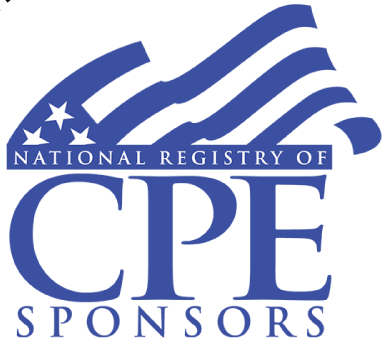Stay connected
Be the first to know about new programs, upcoming events, or other exciting opportunities happening at the University of Georgia by joining our mailing list.
About this course
What you’ll learn
This three-course certificate series begins by familiarizing you with basic accounting equations and the effects of transactions. Learn the elements of financial reports and Generally Accepted Accounting Principles (GAAP) for state and local governments.
Lessons including basic accounting theory, double-entry accounting, payroll and benefits, interfund, and the chart of accounts provide a firm foundation to build upon throughout the series. Investment in learning the basis of accounting, such as recording transactions, and accounting systems and record practices, focus your career path by developing a solid knowledge base. Online courses in the University of Georgia’s Government Accounting Series establish a firm footing for your career goals.
The certificate series comprises three courses, and must be taken in sequential order:
- Introductory Governmental Accounting Part I
- Introductory Governmental Accounting Part II
- Intermediate Governmental Accounting
Monthly review session
Participate in monthly, live virtual accounting review and Q&A sessions hosted by a faculty member of the Carl Vinson Institute of Government throughout the duration of your program. At the end of each session, the presenter will also provide a brief review of the content of each course in the three-course accounting series.
Learning objectives
Lesson 1 — Basic Accounting Theory
- Define the terms “economic condition” and “financial position.”
- Recall the basic accounting equation.
- Identify asset and liability accounts.
- Observe the relationship between the balance sheet/statement of net position and the operating statement.
- Explain how revenues and expenditures affect fund equity.
Lesson 2 — The Chart of Accounts
- Explain the architecture of a governmental chart of accounts.
- Identify asset, liability, equity, revenue, expenditure, and expense accounts.
- Code funds and accounts.
Lesson 3 — Double Entry Accounting
- Record transactions using debits and credits.
- Demonstrate how debits and credits affect accounts.
Lesson 4 — Accounting Systems & Records
- Cite the difference between journals and ledgers.
- Recognize how accounting systems process information into reports.
- Practice recording accounting transactions.
- Describe the value and purposes of a trial balance.
Lesson 5 — Fund Accounting
- Define each of the fund categories and generic fund types.
- Determine when to use each generic fund.
Lesson 6 — The Basis of Accounting
- Define the phrase “basis of accounting.”
- Contrast the three common bases of accounting.
- Cite the revenue and expenditure recognition criteria using the modified accrual basis of accounting.
- Perform simple calculations of revenues and expenditures/expenses using the modified accrual and/or accrual bases of accounting.
- Recall the difference between the purchases and consumption methods of accounting for prepaid assets and inventories.
Lesson 7 — Payroll and Benefits Accounting
- Identify how employee earnings are determined.
- Distinguish between a gross payroll and an adjusted gross payroll.
- Define the various types of payroll deductions.
- Demonstrate how to record the payroll and the employer’s share of employee benefits.
Lesson 8 — Accounting for Interfund Transactions
- Understand the difference between interfund loans and interfund transfers
- Record interfund loans and interfund transfers.
Lesson 9 — Adjusting and Closing the General Ledger
- Recall why adjusting journal entries are required.
- Record adjusting and closing entries.
Lesson 10 — Practice Exercise
- Carry out a practice exercise, including different types of daily, ordinary, and governmental accounting transactions to determine if you have grasped most of the concepts discussed in the course.
Who should attend?
The ideal participants for this course are governmental employees who require knowledge of the accounting process. Governmental agencies and private businesses require vastly different accounting needs and processes. Whether you are coming from the private sector and need more governmental accounting knowledge or are already a CPA, this course is your professional cornerstone. If you belong to a state licensing board that require CPAs to maintain and improve their skills through continuing education courses, or just need to prepare for the CPA exam, this course will set you on the path to help you reach your professional goals in accounting.
Continuing Education Information
The University of Georgia will award 2.55 Continuing Education Units (CEUs) upon successful completion of Introductory Governmental Accounting, Part I.
21.5 Continuing Professional Education units (CPEs) hours are awarded upon successful completion of the course.
University of Georgia CEU transcripts are available at any time upon written request.
Upon successful completion of all three accounting courses, a Certificate of Program Completion from the University of Georgia is awarded to all enrollees who complete the three-course series in a three-year period, based on the enrollment date of Introductory Governmental Accounting Part I.
NASBA Information
Field of Study: Accounting (Governmental)
Delivery Method: QAS Self Study
Advance Preparation: None
Program Level: Basic
Prerequisites: None
Requirements & policies
Schedule
Complete the course’s required online quizzes and exercises within three months of issuance of course access information.
Fees & funding information
$599 — Residents of Georgia
$639 — Non-Residents of Georgia
$50 — One-Month Extension (Only one extension is granted per participant.)
Prepayment is required to be registered. Prices listed are per person.
Cancellation or refund
We will issue a refund, minus a $50 processing fee, if you have not accessed the online course at all. All cancellation and refund requests must be sent via email to gc-student@uga.edu no later than seven (7) days after your course access information is issued.
Certification
This course meets a Level I core course requirement in the Local Finance Officer Certification Program for local government personnel in the State of Georgia.
Local Georgia government employees receive a certificate as outlined in the Local Government Finance Officer Certification Program.
Prerequisites
There are no prerequisites for enrolling in this course.
Textbooks
A link to the Participant Manual is included in the course.
Organizations
Supporting associations
This course is approved by the National Association of State Boards of Accountancy

Prices, course details, dates, and times are subject to change.
Contact us + FAQs
FAQs
View the most frequent questions asked by our learners
Financial and Military Assistance
Find out which programs are eligible for assistance
Accommodations
View our accommodation policy




